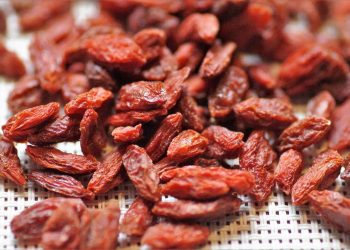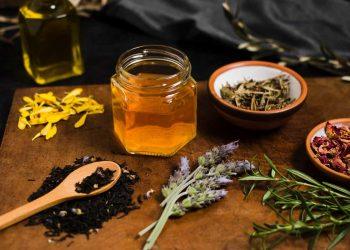Did you know that the foods you eat can significantly impact your eye health? It’s true! As someone who’s always been curious about the connection between diet and health, I’ve often wondered if munching on certain colorful foods could help maintain or even improve my eyesight. Spoiler alert: it can! In this article, we’ll explore five vibrant foods that are not just a feast for the eyes but also great for your vision.
Contents
The Importance of Eye Health
Before we dive into our colorful cast of characters, let’s take a moment to understand why eye health is crucial. With the rise of screen time, whether it’s from computers, tablets, or smartphones, our eyes are under constant strain. Conditions like digital eye strain, cataracts, and age-related macular degeneration (AMD) are becoming increasingly common. Incorporating eye-friendly foods into your diet can be a proactive step toward maintaining your vision as you age.
1. Carrots: The Classic Eye-Health Booster
You’ve probably heard that carrots are good for your eyes since you were a kid. But is it just a myth, or is there some truth to it? Carrots are loaded with beta-carotene, which your body converts into vitamin A. This vitamin is essential for maintaining good vision, especially in low-light conditions.
Why They’re Good for You
- Beta-Carotene: Helps improve night vision and overall eye health.
- Antioxidants: Protects against oxidative stress, which can damage eye cells.
How to Enjoy Them
You can munch on raw carrots, toss them in salads, or roast them for a sweet treat. Just remember, the brighter the carrot, the better!
The Caveat
While carrots are great, they won’t magically give you 20/20 vision. It’s essential to have a balanced diet for overall eye health.
2. Spinach: A Leafy Green Powerhouse
Spinach isn’t just for Popeye; it’s packed with lutein and zeaxanthin, two antioxidants that are crucial for eye health. These compounds help filter harmful blue light and protect the retina from damage.
Why They’re Good for You
- Lutein and Zeaxanthin: These antioxidants can lower the risk of AMD and cataracts.
- Vitamins: Spinach is rich in vitamins C and E, both of which contribute to eye health.
How to Enjoy Them
Add spinach to smoothies, salads, or even as a side dish. The possibilities are endless! And don’t forget to pair it with a little healthy fat, like olive oil, to enhance nutrient absorption.
The Caveat
Some folks may experience oxalate buildup if they consume too much spinach. Moderation is key!
3. Blueberries: Tiny but Mighty
Blueberries are not just a tasty snack; they’re also known for their high antioxidant content. These little berries are packed with vitamins C and E, which are essential for maintaining healthy eyes.
Why They’re Good for You
- Antioxidants: Help combat oxidative stress and inflammation in the eyes.
- Vision Improvement: Some studies suggest that the compounds in blueberries may improve night vision.
How to Enjoy Them
Snack on them fresh, toss them in yogurt, or blend them into smoothies. You can even use them in desserts for a healthy twist!
The Caveat
While blueberries are beneficial, they’re not a replacement for other nutrient-rich foods. A diverse diet is essential for optimal health.
4. Bell Peppers: A Rainbow of Options
When it comes to colorful foods, bell peppers are hard to beat. They come in various colors, each packed with different nutrients. Red, yellow, and orange bell peppers are particularly high in vitamin C and beta-carotene.
Why They’re Good for You
- Vitamin C: Supports the health of blood vessels in the eyes.
- Beta-Carotene: Again, good for night vision and overall eye health.
How to Enjoy Them
Slice them up for a crunchy snack, toss them in salads, or stir-fry them with other veggies. They’re versatile and can be added to almost any dish!
The Caveat
While bell peppers are nutritious, they can cause digestive issues for some people. If you’re sensitive, it’s best to consume them in moderation.
5. Sweet Potatoes: The Nutrient-Dense Delight
Sweet potatoes are not only delicious but also packed with nutrients that are beneficial for eye health. Like carrots, they are rich in beta-carotene and also provide a good amount of vitamin E.
Why They’re Good for You
- Beta-Carotene: Supports good vision and may lower the risk of eye diseases.
- Vitamin E: Acts as an antioxidant, protecting eye cells from damage.
How to Enjoy Them
You can bake, mash, or fry sweet potatoes for a hearty side dish. They also make a great base for various recipes!
The Caveat
Sweet potatoes are high in carbohydrates, so if you’re watching your carb intake, keep portion sizes in mind.
Frequently Asked Questions
1. Can I get enough nutrients for eye health just from food?
Yes, a balanced diet rich in colorful fruits and vegetables can provide most of the nutrients needed for eye health. However, some people may need supplements, especially if they have specific deficiencies.
2. How quickly can I see results from eating these foods?
While you won’t see immediate effects, consistent consumption of eye-healthy foods can help maintain your vision over time. It’s more about long-term health than quick fixes.
3. Are there any foods I should avoid for eye health?
Yes, highly processed foods, excessive sugar, and trans fats can negatively impact eye health. Moderation is key.
4. Is it too late to start eating these foods if I’m older?
Absolutely not! It’s never too late to improve your diet. Incorporating these foods can help protect your vision at any age.
Conclusion
Incorporating colorful foods into your diet is a simple yet effective way to boost your eye health naturally. From vibrant carrots to luscious blueberries, these foods provide essential nutrients that can help protect your vision as you age. Remember, though, that while these foods are beneficial, they should be part of a balanced diet.
So, the next time you’re at the grocery store, think about adding a splash of color to your cart! Your eyes will thank you for it.
This article is for educational purposes only and is not a substitute for professional medical advice. Always consult a qualified healthcare provider before making changes to your health routine.
References
- Ma, L., & Wu, J. (2020). Dietary Carotenoids and Eye Health: A Review. Nutrients, 12(5), 1323. https://doi.org/10.3390/nu12051323
- Beatty, S., Koh, H. H., Phil, M., & Henson, D. (2020). The Role of Lutein and Zeaxanthin in Eye Health: A Review. Clinical and Experimental Optometry, 103(4), 465-473. https://doi.org/10.1111/cxo.13045
- Harvard Health Publishing. (2021). Foods That Are Good for Your Eyes. Retrieved from https://www.health.harvard.edu/staying-healthy/foods-that-are-good-for-your-eyes
- Mayo Clinic. (2022). Eye health: Protecting your vision. Retrieved from https://www.mayoclinic.org/healthy-lifestyle/adult-health/in-depth/eye-health/art-20046008
Get Your FREE Natural Health Guide!
Subscribe now and receive our exclusive ebook packed with natural health tips, practical wellness advice, and easy lifestyle changes — delivered straight to your inbox.














